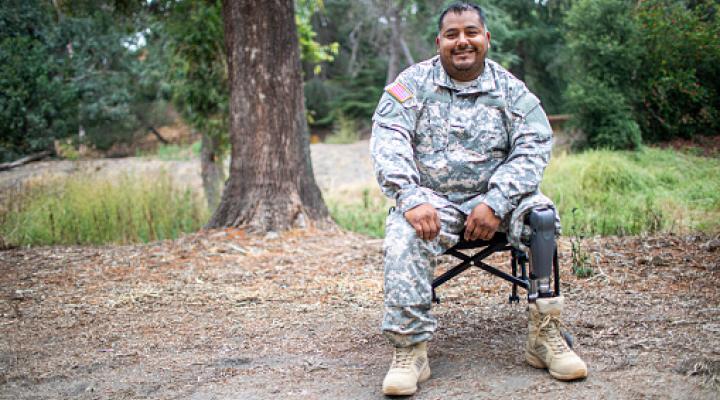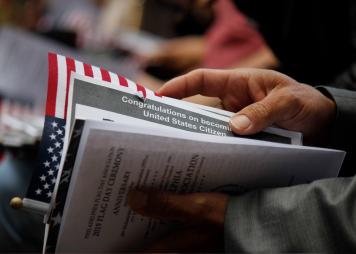More than Citizenship for Immigrants in Service

Immigrants have served with distinction throughout the country's military branches, and have a long-standing tradition of serving in the U.S. Armed Forces, dating back to the Revolutionary War. Over the years, they have continued to demonstrate dedication, courage, and a deep commitment to safeguarding the nation's freedom and values.
Sofya Aptekar, Associate Professor of Urban Studies at City University of New York, wanted to understand why immigrants enlisted. Unsurprisingly, it’s not just to become citizens. Her July research reveals that a “fast track to citizenship” is not as important as economic realities, like poverty and debt, and cultural factors, such as a sense of belonging.
“Immigrants who serve in the U.S. military go through the same naturalization process as civilians but are eligible to apply sooner. But I found that naturalization was rarely a major reason they gave for enlisting, and many immigrants said that they did not think much about citizenship when they joined the military,” Aptekar writes. “For some immigrants, military service could be a tool for gaining a sense of belonging unavailable through citizenship papers alone.”
Immigrant Enlistment Numbers
According to the U.S. Department of Defense (DoD), immigrants constitute a substantial percentage of the U.S. military's total active-duty and reserve forces. The most recent government estimates report that about 5,000 legal permanent residents enlist each year. More than 148,000 immigrants have served and earned citizenship through the military in the last 20 years. Over the last century, military service has provided a pathway to American citizenship for more than 760,000 immigrant servicemembers.
Data analysis from FWD.us estimates there are 45,000 immigrants actively serving.
The Importance of Immigrants for the Future of the U.S. Armed Forces
The inclusion of immigrants from diverse cultural backgrounds enhances the adaptability and global awareness of the U.S. military. Different perspectives and experiences foster innovative approaches to tackle complex challenges.
Many immigrants also bring bilingual or multilingual abilities, which prove invaluable for communication with local populations during overseas operations. Immigrants often possess unique skill sets and expertise gained from their home countries' military or civilian sectors, contributing to the armed forces' overall capabilities.
As the U.S. military faces ongoing recruitment challenges, immigrants provide a crucial source of potential recruits, helping to fill personnel gaps and maintain force readiness.
The Wall Street Journal recently noted that 2022 marked the most difficult year for the U.S. Army since the inception of the all-volunteer force in 1973, with the branch falling a shocking 25 percent short of its recruitment target. Looking ahead to 2023, the Army expects to miss its target of 65,000 recruits by 15,000. Similarly, the Navy expects to be up to 10,000 short of its recruiting goal of approximately 38,000.
Immigrants have long been an integral part of the U.S. Armed Forces, selflessly serving their adopted country and upholding its values. Their contributions to the military, both past and present, are undeniably crucial to the nation's security and success. Recognizing the importance of immigrants in the armed forces and continuing to embrace their diverse backgrounds will be key to ensuring a robust and effective military in the immediate future.



